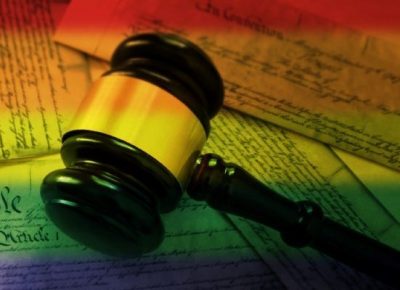LGBTQ Community and Civil Rights 26/04/2019 – Posted in: Daily News
LGBTQ Community and Civil Rights
For: Preliminary; Mains: GS II
Topics covered: Governance, Social Justice, Court’s judgments
News Flash
In the judgment delivered in Arunkumar and Sreeja v. Inspector General of Registration and Others (2019). The Madras High Court has held that a properly solemnised marriage between a male and transwoman is valid. The marriage is valid under the Hindu Marriage Act, 1955, and the Registrar of Marriages is bound to register the same.
Transgender
Transgender people are the one who feels sexually opposite according to their body structure or genitals.
| As per The Transgender Persons (Protection of Rights) Bill, 2016
The Bill defines a transgender person as one who is partly female or male; or a combination of female and male; or neither female nor male. In addition, the person’s gender must not match the gender assigned at birth, and includes trans-men, trans-women, persons with intersex variations and gender-queers. |
| Earlier judgment NALSA v. Union of India (2014) quotes: The transgender persons have the right to decide their “self-identified gender”. |
Significance of this judgement
While this is path-breaking for much of the country, the judgment also opens doors to the larger LGBTQ community for availing civil rights including marriage, succession and inheritance.
The judgement states that the expression “bride” occurring in Section 5 of the Hindu Marriage Act cannot have a static or immutable meaning. As noted in Justice G.P. Singh’s Principles of Statutory Interpretation, the court is free to apply the current meaning of a statute to present-day conditions.
The Madurai Bench judgment has revised the legal construction of gender and the conventional interpretation of terms such as “bride” and “bridegroom”.
Rights granted under Indian Law to transgender
- The right of equality before law and equal protection of law is guaranteed under Article 14 and 21 of the Constitution.
- The right to chose one’s gender identity is an essential part to lead a life with dignity which again falls under the ambit of Article 21.
- The Court has given the people of India the right to gender identity.
- Any person cannot be discriminated against on the ground of gender as it is violative of Articles 14, 15, 16 and 21.
- The Court also protects one’s gender expression invoked by Article 19 (1) (a) and held that “no restriction can be placed on one’s personal appearance or choice of dressing subject to the restrictions contained in article 19(2) of the Constitution”.
Source: The Hindu
You can follow us and read more Articled on LinkedIn and for more updates related to UPSC IAS Preparation, Like our Facebook Page and subscribe our Diligent IAS Youtube Channel
Also Read Related Daily News

